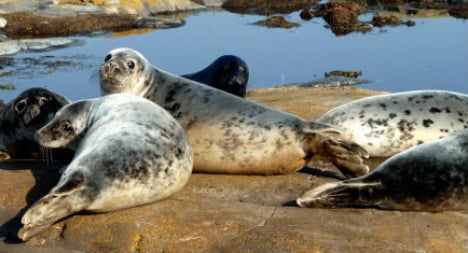The World Trade Organization's appellate body said that Brussels did not breach the rules of global commerce when it imposed its ban in 2010.
The global body has never before issued a final decision on how to square animal welfare with international trade regulations, and observers have said the case therefore marks a watershed.
The WTO's disputes settlement panel — which like the appellate body is made up of independent trade and legal experts — had in November issued a similar ruling.
But that decision was put on ice after Canada and Norway appealed.
"The Appellate Body upheld the Panel's finding that the EU Seal Regime is 'necessary to protect public morals'," the WTO said in a statement on Thursday.
The WTO polices global trade accords in an effort to offer its 159 member economies a level playing field, and can authorise penalties against wrongdoers, such as retaliatory tariffs.
But the appellate body, whose decision is final, dashed Canada and Norway's hopes of a blow against the EU.
Like the disputes settlement panel, it ruled that while there was merit in Norway and Canada's complaints that their seal trade was being affected, this was outweighed by the EU goal of addressing moral concerns about seal welfare.
Opponents of allowing the moral argument to stand have argued that it will open a Pandora's box for other countries that want to deploy it.
Brussels argues that the EU public strongly favours the ban due to concerns over hunting methods such as using a club with a metal spike — a "hakapik" — to stun seals before killing them.
The EU has mustered what it says is convincing scientific evidence to prove that such methods are cruel. Norway and Canada have deployed counter-arguments from scientists to try to knock down EU claims, insisting that seal hunting is no worse than commercial deer-hunting, which is widespread in the EU.
The countries both kill tens of thousands of seals per year, and say hunting is a practice stretching back centuries.
The EU ban applies to commercial hunting from Norway as well as the Canadian provinces of Newfoundland, Labrador and Quebec. All told, 6,000 people hunt seals commercially in Canada, chiefly in Newfoundland.
The EU ban does contain exceptions for Canada's indigenous Inuits and Inuvialuit peoples from the province of Nunavut, but they argue that the market for their seal products has been seriously affected by the overall embargo.
Kalaallit hunters from Greenland are also exempt — their homeland is an autonomous territory of EU member Denmark, but is not part of the 28-nation bloc.
In addition, the indigenous Inupiat and Yupik communities in the US state of Alaska, and the Yupik of Russia are also allowed to trade seal products with the EU.
Canada and Norway said the exemptions were unfair for non-indigenous hunting communities — and that the scale of the Greenland hunt was tantamount to commercial sealing.
The appellate body declined to rule on the issue of discrimination between indigenous and non-indigenous hunters.
But it went a step further than the original panel in saying that if Brussels felt animal welfare was so important, it should also strengthen regulations governing indigenous hunters.
Canada and Norway also argued that seal-hunting is a crucial way to control numbers, thereby protecting the environment and managing fish stocks.
They complained that EU members such as Sweden, Finland and Estonia were allowed to sell seal products from animals killed as part of a marine resource management programme.
The WTO panel last year ruled that such favourable treatment did violate trade rules, and the appellate body upheld that but noted that the programme in question was in any case being reformed.
The EU ban does not cover Canadian and Norwegian sealskins imported by the European fashion industry, provided they are subsequently exported — key markets include Russia and China.


 Please whitelist us to continue reading.
Please whitelist us to continue reading.
Member comments